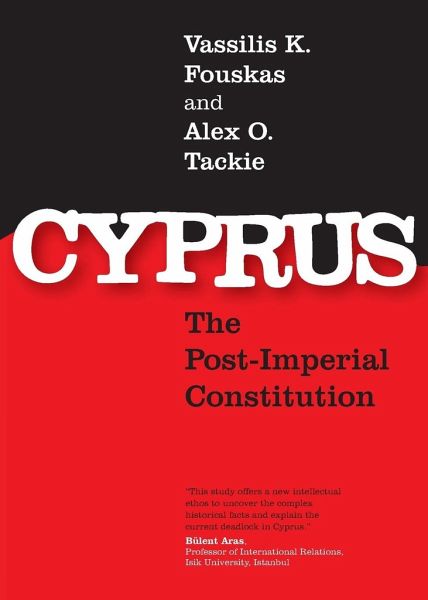
Cyprus
The Post-Imperial Constitution

PAYBACK Punkte
14 °P sammeln!
This book provides a non-partisan approach to Cyprus that goes beyond the perceptions of ruling elites on the island and their NATO masters, which are historically responsible for the division of Cyprus today. Fouskas and Tackie argue that the rise to power of two left-wing parties on both sides of the Green Line means it is time to launch a serious political dialogue to initiate a post-imperial constitutional process. This is a feasible undertaking, not least because Cyprus is a member of the EU, but not a member of NATO. Short and accessible, this book aims to revive a debate in the spirit o...
This book provides a non-partisan approach to Cyprus that goes beyond the perceptions of ruling elites on the island and their NATO masters, which are historically responsible for the division of Cyprus today. Fouskas and Tackie argue that the rise to power of two left-wing parties on both sides of the Green Line means it is time to launch a serious political dialogue to initiate a post-imperial constitutional process. This is a feasible undertaking, not least because Cyprus is a member of the EU, but not a member of NATO. Short and accessible, this book aims to revive a debate in the spirit of Dervis Ali Kavatzoglou and Constantine Misiaoulis, popular symbols of a united, democratic and independent Cyprus.














